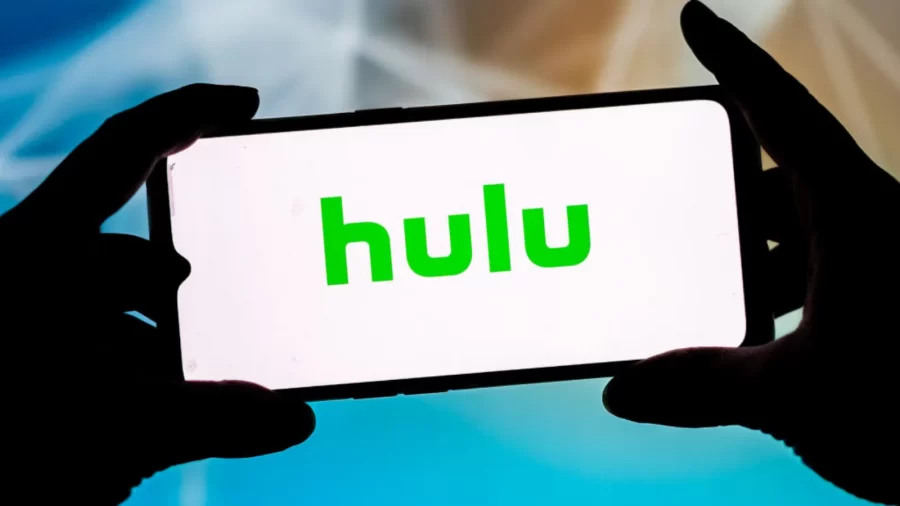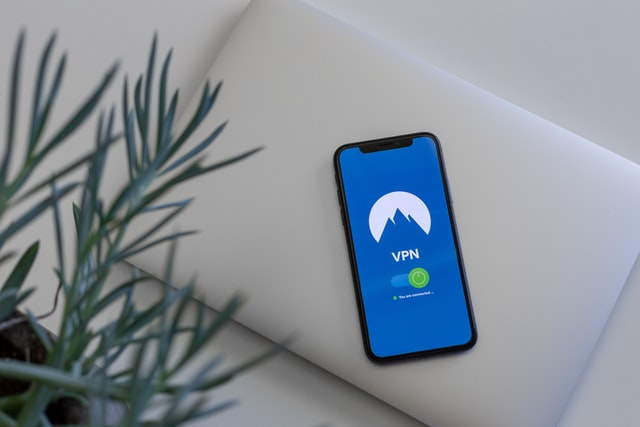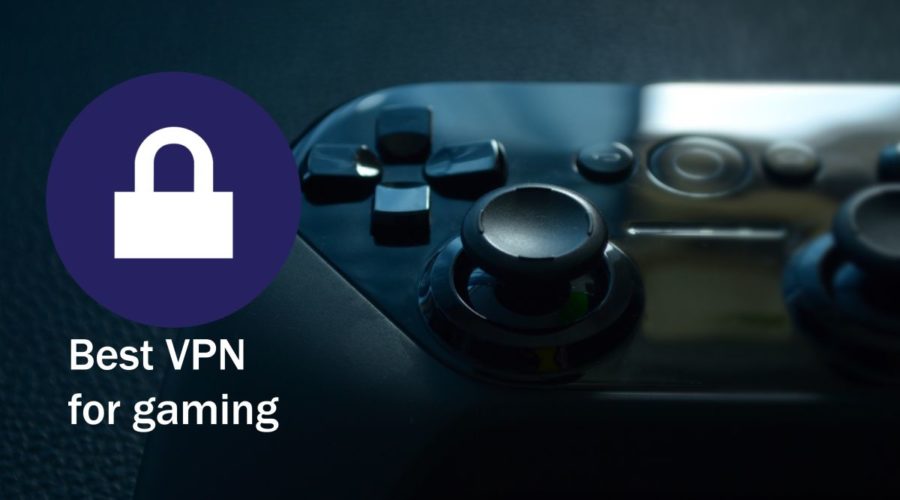Mainstream
Gaming VPN – Why You Should Use One

Modern gaming is a ton of fun, in general, and we’re living in a time of effectively endless content available across multiple hardware and distribution platforms. That much is a given. But the advent of digital distribution and omnipresent online gaming carry their own risks and problems. Thankfully, some of them can be alleviated with a VPN service.
Before we go on to list them, let’s take a quick look at how VPN works, at a basic level.
What is a VPN?
VPN, short for Virtual Private Network is a secure tunnel letting you connect to the Internet in a relatively secure manner, masking your activity from your ISP (Internet Service Provider). While some traffic still comes through ISP’s servers, instead of a website list etc. they only see that you are using a VPN. This is handy for one of the reasons we mention later on.
As an added bonus, most, if not all VPNs allow you to choose a server located elsewhere in the world, allowing you to use the Internet as if you were in the United States, while you’re actually sipping tea in your English office.
Most reliable VPNs are paid, the cost increasing depending on the number of accessible servers, the number of simultaneous connection, bandwidth limits and other factors, but the consensus is that it’s typically worth the price. Of course there are also free VPNs you could use, but they typically have limited features.
At the end of the article we suggest top 5 among both paid and free VPNs for gaming. For now, however, let’s review the reasons why using a VPN can improve your experience with games and regular browsing alike.
Benefits of using a VPN for online games
Playing online is fun, at least until you start getting lags, for reasons, possibly including a free afternoon for most people on your continent/timezone, and wonky servers. VPNs can help you alleviate this problem a bit, letting you connect to your chosen game through region-bound servers suffering from slightly less load. And since most VPNs happen to have multiple servers in many countries, you may find your connection significantly or at least perceptibly improved. Depending on the game you play, having a split-second delay and not having a split-second delay may be the difference between getting a kill and waiting for some time in the respawn screen.
VPNs lets you access regional servers
Sometimes all servers get the same game build. It happens. Sometimes, living in a certain part of the world may mean getting a slightly outdated version of the game.
At other times, the game itself might be unavailable in your country or continent. Such is the case with Dragon’s Dogma Online, which never launched outside of Japan, leaving Western Dragon’s Dogma fans with volunteer translations and, yes, having to use VPNs to access the game.
That’s a big thing, especially for fans of MMOs, since many Asian ones can pass us by, never officially launching anywhere Western players can easily access.
VPNs vs. digital gaming stores
Digital distribution is a treat. Although many of us mourn the age of physical editions, there’s no denying the convenience of using digital stores to get new games. None of us have unlimited warehouses to stuff with games, and the discounts are also easier to get. Until they aren’t, because you’re in a wrong country.
It happens. Some countries can have a game release ahead of your normal country of residence, sometimes the publisher decides that changing a game to fit a country’s strict publishing policy isn’t worth the hassle. Sometimes there are unique sales targeted at a given market.
Either way, VPNs solve this problem by letting you pick a server bound to a country where these limits do not apply. It can entail some risks, of course, but if you are travelling it’s an option worth weighing against drawbacks.
Protected and anonymous: VPN shields against DoS attacks
If you’ve been around the internet in the past couple of years, you are likely familiar with the idea of a Denial of Service, or Distributed Denial of Service, abbreviated to DoS and DDoS. If you aren’t: DoS attacks aim to disrupt its target’s connection to the internet. Usually they take the form of a flooded traffic, preventing the desired requests from reaching the victim.
DDoS attacks are a sad reality of the internet, and you may fall victim to one if someone doesn’t like the way you play, wants you to stop winning, or just plain doesn’t like you. VPNs can help you.
A good first step is being anonymous, VPNs already help with it, but they also go one step further. They can filter out the excessive traffic, protecting you from the brunt of the attack.
Anonymous VPN: free of ISP throttles
Some Internet Service Providers are pretty relaxed, letting you use up your bandwidth indiscriminately on gaming and hefty downloads of patches of a new game in your library. Sometimes, however, you can end up with and ISP which after noticing this kind of activity will try tightening the flow, figuratively, which can seriously extend the DL time and possibly cause connectivity problems in your chosen online game.
With a VPN active, however, your provider doesn’t have a clue what you are downloading, they just know you’re using a VPN. They can’t block you over something they aren’t exactly aware of now, can they?
VPN for gamers recommendations
Let’s talk specifics now. Which VPNs are worth attention? We have prepared two short lists: one with paid and one with free VPNs, all good for gaming purposes. Let’s have a look.
The best paid VPNS
Paid VPNs are typically the most reliable of the bunch, taking your money in exchange for decent transfer speeds, several allowed simultaneous connections (for you multi-device users), better encryption, all the good stuff.
- ExpressVPN – that one’s popular. They have a rather user-friendly front, and boasts about having servers in almost every country, possibly giving you access to even the most obscure MMOs, if that’s your jam
- Buffered – with Buffered you can use the service on even up to five devices, all at a very satisfying speed, too. They don’t offer as many countries as ExpressVPN, but that’s up to you to decide if that’s an acceptable concession
- HideMyAss – named in a somewhat uncouth way, HMA does just what it says on the can. One of the best features of it is an anonymous email service coming at no additional cost, servers is virtually any country you have any business connecting to, but the price of that is a low number of allowed connected devices: only two
- NordVPN – great for US-based users, NordVPN uses double encryption to keep snoops at bay. Although it’s price might be hefty, you can check NordVPN free of charge for three days and see if it works for you
- CyberGhost – the CyberGHost VPN service offers great speeds, and a somewhat stunning number of servers, which are all great. More importantly, however, it has a strict No Logs policy, ensuring your privacy as much as possible
The best free VPNs
If you value privacy and safety, then free VPNs may not be your best bet, but sometimes a free solution is just about enough to suit your needs, so some recommendations are still in order. Besides, you can always add some extra precautions, such as using Google’s DNS instead of your ISPs, if you’re feeling adventurous.
- hide.Me – one of its best features is being open for up to 5 simultaneous connections. It also has iOS and Android apps, if you want to go mobile as well
- SurfEasy – it’s a good example of a decent free VPN. Doesn’t do anything outstandingly well, but keeps its logs mostly free, recording the very minimum about your connection
- GOOSE.VPN – Goose offers really good encryption for a free solution, and happens to be rather user-friendly at the same time
- TunnelBear – users of TunnelBear can enjoy pretty good speed, servers in over 20 countries and solid encryption via OpenVPN
- Windscribe – in addition to having servers in 50 different locations, they also offer a handy Chrome extension, which may appeal to the users of Google’s browser
Conclusions
Whether you are a gamer looking to play in better conditions or you try to be more anonymous, VPNs and proxys are among the first steps to achieving this infinitely elusive goal. The two lists we’ve provided are of course by no means exhaustive, but may provide you with a something to compare VPNs you find on your own, or they may be just what you needed with no further research required.
Of course nothing stops you from checking them all out to figure out which one to make your final gaming VPN, free trials of 30-day money back guarantees are a common practice.
Whatever your choice, stay secret, stay safe in the weird roads of the Internet.
Featured
Top 7 Video Game Based Movies You Must Watch on Hulu in NZ

Are you tired of playing video games all day long? Why not take a break and watch some video game-based movies on Hulu in NZ? With its vast collection of movies and TV shows, Hulu is the perfect platform to satisfy your gaming cravings.
From action-packed thrillers to heartwarming dramas, we would recommend you to get Hulu in NZ, because Hulu has it all. So, without further ado, let’s dive into the top 7 video game-based movies that you must watch on Hulu in NZ.
Assassin’s Creed (2016)
Genre: Action, Adventure, Fantasy
Director: Justin Kurzel
Major Cast: Michael Fassbender, Marion Cotillard, Jeremy Irons
Runtime: 1 hour 55 minutes
The first on our list is the movie adaptation of the popular video game franchise “Assassin’s Creed.” Starring Michael Fassbender and Marion Cotillard, this movie follows the story of Callum Lynch, who discovers he is a descendant of a secret society of assassins. With stunning visuals and breathtaking action scenes, this movie is a must-watch for any Assassin’s Creed fan.
Rampage (2018)
Genre: Action, Adventure, Sci-Fi
Director: Brad Peyton
Major Cast: Dwayne Johnson, Naomie Harris, Malin Akerman
Runtime: 1 hour 47 minutes
If you’re a fan of monster movies and video games, “Rampage” is the perfect movie for you. Starring Dwayne “The Rock” Johnson, this movie is based on the classic arcade game of the same name. The movie follows a primatologist who teams up with a genetically modified gorilla to stop two other genetically modified animals from destroying the city. With its over-the-top action and humor, “Rampage” is a fun-filled ride from start to finish.
Sonic the Hedgehog (2020)
Genre: Action, Adventure, Comedy
Director: Jeff Fowler
Major Cast: James Marsden, Jim Carrey, Ben Schwartz
Runtime: 1 hour 39 minutes
For all the Sonic fans out there, “Sonic the Hedgehog” is a must-watch movie. Starring Jim Carrey as Dr. Robotnik and Ben Schwartz as the voice of Sonic, this movie follows Sonic as he teams up with a human cop to stop Dr. Robotnik from taking over the world. With its fast-paced action and lovable characters, “Sonic the Hedgehog” is a movie that both kids and adults can enjoy.
Mortal Kombat (2021)
Genre: Action, Adventure, Fantasy
Director: Simon McQuoid
Major Cast: Lewis Tan, Jessica McNamee, Josh Lawson
Runtime: 1 hour 50 minutes
If you’re a fan of the Mortal Kombat video game franchise, you won’t want to miss the 2021 movie adaptation. With its gory fight scenes and iconic characters, this movie is a love letter to the fans of the game. The movie follows a group of fighters who are recruited to participate in a tournament to determine the fate of the world. With stunning visuals and non-stop action, “Mortal Kombat” is a movie that will leave you on the edge of your seat.
Warcraft (2016)
Genre: Action, Adventure, Fantasy
Director: Duncan Jones
Major Cast: Travis Fimmel, Paula Patton, Ben Foster
Runtime: 2 hours 3 minutes
Based on the popular MMORPG game, “Warcraft” tells the story of the battle between humans and orcs. Starring Travis Fimmel and Paula Patton, this movie follows a group of human heroes as they try to stop the orc invasion. With its epic battles and stunning visuals, “Warcraft” is a movie that will transport you to a world of magic and adventure.
Tomb Raider (2018)
Genre: Action, Adventure, Fantasy
Director: Roar Uthaug
Major Cast: Alicia Vikander, Dominic West, Walton Goggins
Runtime: 1 hour 58 minutes
Based on the popular video game franchise of the same name, “Tomb Raider” stars Alicia Vikander as the iconic Lara Croft. The movie follows Lara as she sets out on a dangerous journey to solve the mystery of her father’s disappearance. With its intense action scenes and captivating storyline, “Tomb Raider” is a movie that will keep you hooked from beginning to end.
Resident Evil (2002)
Genre: Action, Horror, Sci-Fi
Director: Paul W.S. Anderson
Major Cast: Milla Jovovich, Michelle Rodriguez, Eric Mabius
Runtime: 1 hour 40 minutes
Last but not least, we have the classic zombie horror movie “Resident Evil.” Starring Milla Jovovich as Alice, this movie is based on the popular video game franchise of the same name. The movie follows Alice and a group of survivors as they try to escape from an underground research facility infested with zombies. With its tense atmosphere and pulse pounding action, “Resident Evil” is a must-watch for any horror or action movie fan.
Conclusion
So there you have it, the top 7 video game-based movies that you must watch on Hulu in NZ. From the high-flying action of “Assassin’s Creed” to the terrifying zombie outbreak in “Resident Evil,” each movie offers its unique take on the beloved video games that inspired them.
Whether you are a die-hard gamer or a movie enthusiast, these movies are sure to satisfy your craving for pulse-pounding action and adventure.
Hulu in NZ offers a fantastic selection of movies and TV shows that cater to a wide range of tastes and preferences. With these top 7 video game-based movies, you can immerse yourself in the world of your favorite games and enjoy them on the big screen.
Mainstream
Top Fighting Games on Android

Fighting games have been a major sub-genre of the industry since the dawn of gaming. While the original fist-fighting game came out in 1976, the genre arguably peaked in the 1980s. Dozens of franchises came smashing down arcades, from Mortal Kombat to Tekken.
But gamers do not need to visit the local gaming center anymore to get in on the action, as platform fighters and hand-to-hand combat have long gone mobile. So, are you up for a brawl? Whether you’re into brutal MMA fights or formidable superhero battles, let’s round up some of the best fighting games to play on Android.
Marvel Contest of Champions
While movies and comic books are still at the core of its extended universe, Marvel has also expanded to the gaming medium. Much to mobile gamers’ dismay, though, exhilarating brawler games like Marvel’s Avengers and massive crossovers like Marvel vs. Capcom never made it to smartphones. But Marvel Contest of Champions is more than epic enough to make up for it.
Developed by Kabam, this versus-fighting action game features a pretty strong line-up comprising virtually every Marvel character in the book. Beloved heroes like Wolverine, Spider-Man, and Hulk are all set for battle throughout iconic Marvel locations, such as Asgard, Stark Tower, and Wakanda. Yet players may as well pick supervillains to pit against the good guys. So, assemble the strongest super-heroic team and combine each champion’s unique set of devastating attacks and special abilities. Better yet, this mobile Marvel game allows for competitive multiplayer fighting.
Skullgirls: Fighting RPG
Skullgirls is a solid contender for best mobile fighting game out there. This fighting RPG by Autumn Games has got some incredibly responsive battle animations going for it, and just enough grind to keep players engaged for hours on end. Fun special moves and combos take fast-paced combat to the next level, serviced by colorful background visuals and a jazzy soundtrack that may feel out of place but gives the game that much more flavor.
And all kicking and pummeling aside, Skullgirls has much in the way of the story, too. In an original twist on the genre, this 2D RPG features an all-female cast of quirky yet fierce hand-animated characters. Players may even customize their fighter while searching for the elusive Skullgirl and stopping her from destroying the city of New Meridian.
Mortal Kombat
Alongside Capcom’s Street Fighter, Mortal Kombat is probably the best-known fighting franchise in the world. The series stemmed from the idea of making a video game starring action movie superstar Jean-Claude Van Damme. Funnily enough, JCVD would eventually play center stage in the live-action adaptation of Street Fighter. Still, Mortal Kombat spawned countless installations, TV series, and feature films.
And gamers can now experience the visceral fighting and trademark Fatalities that made the franchise so infamous straight on mobile. Mortal Kombat shows off a whopping roster of over 130 warriors, who level up through challenges of increasing difficulty. Teaming up fighters with matching synergies, mobile players can tackle ferocious enemies in online competitive mode or all on their own. This mobile version of the legendary game also includes a card collection feature.
EA Sports UFC
The intensity of the Octagon translates superbly to the gaming medium. Released by Electronic Arts on multiple platforms, EA Sports UFC quickly became the go-to title for gamers with a knack for mixed martial arts. And the mobile version doesn’t disappoint, pitting up to 97 UFC fighters against one another in heated fashion – and even martial arts legend Bruce Lee as an unlockable bonus. EA Sports UFC may thus be the perfect mobile game to dive into while waiting for the next big superstar comeback.
Meanwhile, prominent fighters like Valentina Shevchenko and Nikita Krylov will keep fans on the edge of their seats in upcoming UFC events. And MMA enthusiasts can even spruce up the experience with a gamble. Reviewers like SBO have laid down the most profitable online bookies for punters to explore. The best sportsbooks offer a range of betting options on MMA, ranging from method of victory to total rounds. Lofty bonuses and welcome packages also await newcomers. And online punters can make bank out of even more sports, from the ultra-popular to the niche.
Fighting games are as old as time. But with improved gameplay and ever-so-striking aesthetics, they’ve remained fresh throughout the decades. And players can now get their fists to do the talking on mobile, from retro titles to inventive entries.
Mainstream
What to Expect from Gaming and Online Casinos in the Next 10 Years

The 21st century has been a great time for gaming and online casinos. We’ve seen explosive growth in both sectors, with new technologies and platforms emerging constantly. The following 10 years promise to be even more exciting, as we’ll see even more innovation and growth in the gaming industry, as well as the online gambling industry.
In this blog post, we’ll look at some of the trends that we think will shape the next decade of gaming and online casino development. So whether you’re a casual player or a hardcore gambler, read on to find out what the next 10 years have in store for you!
The increasing popularity of online casinos and gaming
With many people stuck at home, they turned to digital platforms for entertainment, including gaming and slots sites. As a result, these sectors have seen explosive growth over the past few years. With the increasing popularity of technology, games have moved from physical pieces to digital pixelated ones, allowing for even more immersive and engaging gaming experiences.
With the online world ever-growing, it was only a matter of time before gambling followed suit. Nowadays, casinos are looking for ways to pull in more business through rewarding online slots promotions, as opposed to the regular operations in brick-and-mortar casinos. In addition, advancements in technology have allowed for the development of online slots, poker rooms, and other casino games that are not only secure and safe to play but also offer a level of quality that is comparable to land-based casinos.
Although we have made a lot of progress, especially with online casinos and online slots games, there is still more to come. Here are some of the changes we predict for this billion-dollar online casino industry in the next ten years:
The increasing legalization of online casinos globally
As online gaming becomes more and more popular, we are seeing an increased push for the legalization of online gambling in countries all around the world. With more people playing on digital platforms and experiencing the benefits of online casinos, governments are recognizing this trend and moving towards changing laws to allow for wider access to these online gambling sites.
For example, in the United States, more states are beginning to implement legal gambling solutions due to the US federal government softening its regulations. And this trend will likely continue in the coming years, as more countries begin to recognize the benefits of legalizing online casinos which include increased tax revenues and a better way to regulate gambling in the digital age.
Virtual reality gaming
With the rise of virtual reality technology, we can expect to see casinos offer more immersive gaming experiences. Players will be able to experience realistic casino environments and games through VR headsets, allowing for an even more realistic gaming experience. Game developers are constantly releasing new concept games to online casinos, and we can expect these same sorts of fun, attractive experiences to be available in the next few years.
Blockchain Technology for Transparent and Fair Gambling Systems
Another major trend that we will see in online casinos and gaming over the next decade is the use of blockchain technology. With this technology, players can rest assured that they are getting a fair chance to win while enjoying secure transactions and transparent gambling systems. Blockchain technology allows for all casino transactions to be recorded on an open ledger, making it difficult for casinos to manipulate the outcomes of games. As a result, players can enjoy more trust, transparency, and fairness in their online gaming activities.

Game development
When visiting an online casino, it is essential to find an operator that provides a good variety of games. For instance, slots games are very popular in the digital environment, finding a provider with a good variety of slots games will chance your experience. You could find different slots themes and choose the slot game you like the most. In the next ten years, we could be expecting new games integration with better graphics, creative and fun. Game developers will have a higher demand and they will be providing cool slots themes and other casino games.
Top of the line Live Dealer Games
Finally, we will also see more sophisticated live dealer games in online casinos and gaming over the next decade. With the rise of 4K and 5K resolution cameras, online casino providers have been able to offer gamers a much more realistic viewing experience.
These live dealer games can be streamed from various locations, allowing more people to join and play different types of online games. With a more advanced streaming quality, players can now interact with real dealers in real time and enjoy a variety of table games such as roulette, slots, blackjack, and baccarat. With so many exciting changes coming our way, we can look forward to even more engaging gaming experiences in the years ahead!
In Summary
Overall, it’s clear that the gaming and online casino industries are undergoing major changes as we look toward the future. Whether you’re an avid gamer or just a casual player, there are exciting developments on the horizon that will shape how we interact with these platforms – and how they affect our daily lives. So if you’re looking for the best possible experiences from the gambling and casino industry, in particular, be sure to keep an eye out for these exciting online casino trends as well as online slots promotions that suit your playing style.
-

 Guides4 years ago
Guides4 years ago6 Proven Ways to Get more Instagram Likes on your Business Account
-

 Mainstream9 years ago
Mainstream9 years agoBioWare: Mass Effect 4 to Benefit From Dropping Last-Gen, Will Not Share Template With Dragon Age: Inquisition
-

 Guides2 months ago
Guides2 months agoExplore 15 Most Popular Poki Games
-

 Guides1 year ago
Guides1 year agoGan Rubik’s Cube vs. Traditional Rubik’s Cube: Key Differences and Advantages
-

 Casual5 months ago
Casual5 months ago8 Ways to Fix Over-Extrusion and Under-Extrusion in 3D Printing
-

 Mainstream11 years ago
Mainstream11 years agoNew Assets Found for Half Life Episode 4
-
Mainstream14 years ago
How to Fix Modern Warfare 2 Problems/Freezings
-
Guides15 years ago
GTI Club+: Rally Cote d’Azur – PS3 Cheats



